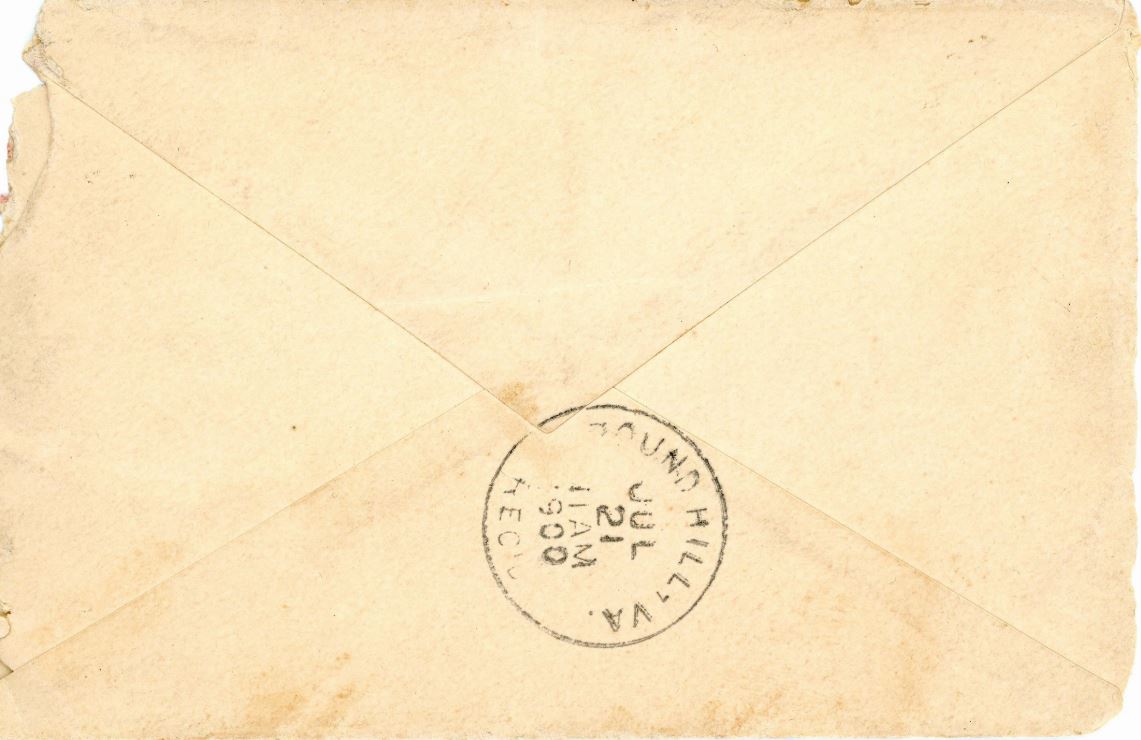SCRC has been hard at work getting various collections digitized over the past few months! Digitizing a collection is no simple trick – it’s laborious and time consuming in both intellectual and physical senses. Multiple SCRC archivists and student workers assist on the digitization of collections. From the processing of a collection – which can take months, even years – to selection, preparation, the actual physical digital capture of the collection, to the creation of metadata and uploading images to our digital repository, digitization is a lengthy (albeit rewarding!) process that takes the talent and guidance of experienced archivists to do so. With that in mind, below are some digitized collections that are now available for research and perusal on SCRC’s website!
This collection was processed and digitized by Liz Beckman, Manuscripts and Archives Librarian.
“Single letter from Virginia Woolf to her brother-in-law Clive Bell, dated September 13, 1921.” More information on the context of this letter can be read on this blog post.
George Mason Letters to John Augustine Washington III – C0315
This collection was processed and digitized by Liz Beckman.
“The collection consists of two letters from George Mason to John Augustine Washington III. Both letters were written in the weeks after John Brown attempted to begin a slave insurrection at Harper’s Ferry in what is now West Virginia. In the first letter, dated October 25, 1859, Mason is concerned about slaves and freed blacks in possession of guns in Fairfax County; he implores Washington to coordinate the seizure of these weapons using ‘a good and efficient patrol – all of native born men’ raised specifically for the job. In the second letter, dated November 2, 1859, Mason suggests forming a Volunteer Company in the wake of John Brown’s raid, and he inquires whether Upton Herbert, the Superintendent of Mount Vernon, would be willing to take command of it.”
Eyewitness account of the Snow Riot – C0291
This collection was processed and digitized by Liz Beckman.
“Letter, probably from Mary Elizabeth Fendall (according to dealer information accompanying the letter), to a woman named Else. The letter describes the 1835 Snow Riot, a racially motivated riot in Washington DC in which young white men attacked and destroyed property belonging to Beverly Snow and other African-Americans in the city.”
Round Hill, Virginia school correspondence – C0255
This collection was processed and digitized by Liz Beckman.
“The small town of Round Hill in Loudoun County, Virginia, was incorporated in 1900, though it had been settled in the 18th century; typically for a southern town of the 19th and early 20th centuries, it was racially segregated (Scheel, ‘History of Round Hill’). This segregation extended to the schools; the Round Hill ‘colored’ school served the African-American community until 1943, when the building burned down (Roeder, ‘Round Hill Colored School, Loudon’). As of the 2010 census, Round Hill has a population of 539 (United States Census Bureau)…This collection contains 10 letters, plus associated letters of recommendation, regarding applications for teaching and principal positions available at the Round Hill and Wood Grove schools in Loudoun County, Virginia, between 1897 and 1900. The recipient of the letters was Dr. J.E. Copeland. Three of the letters specifically reference the Round Hill ‘colored’ school.”
Featured image: Back of envelope for a letter from Georgie Snead to J.E. Copeland, Round Hill, Virginia, school correspondence, Box 1, Folder 1, Letter 11, C0255, Special Collections Research Center, George Mason University Libraries.
To be continued.
Follow Special Collections Research Center on Social Media at our Facebook, Instagram, and Twitter accounts. To search the collections held at Special Collections Research Center, go to our website and browse the finding aids by subject or title. You may also e-mail us at speccoll@gmu.edu or call 703-993-2220 if you would like to schedule an appointment, request materials, or if you have questions. Appointments are not necessary to request and view collections.

